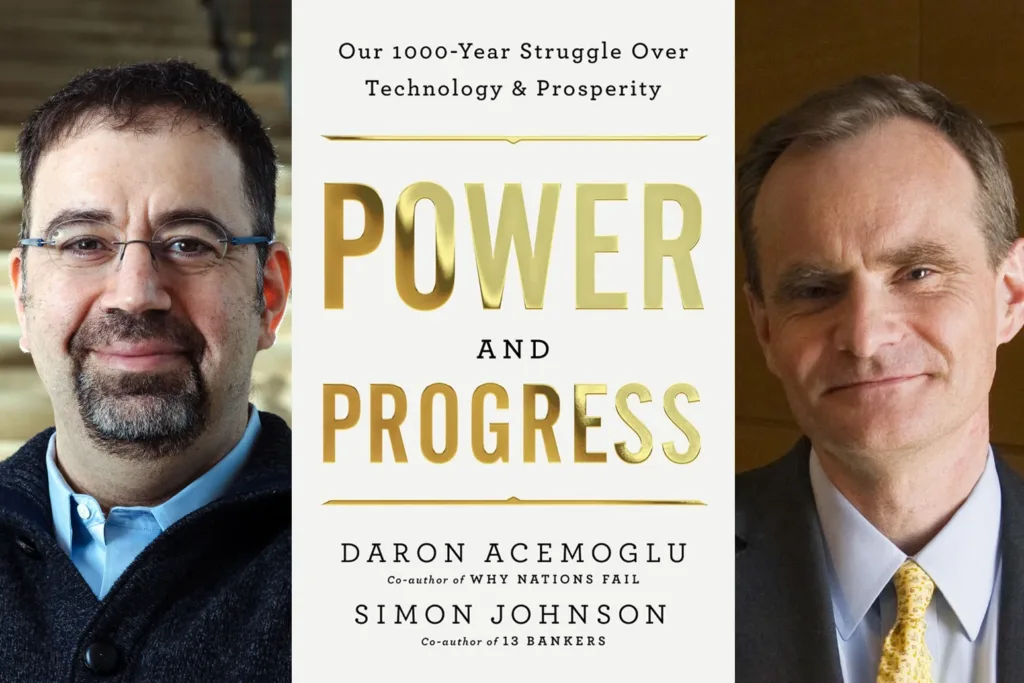Technology is often hailed as the engine of progress, promising increased prosperity and improved living standards. However, the distribution of these benefits is far from guaranteed. In their book, Power and Progress: Our Thousand-Year Struggle Over Technology and Prosperity renowned economists Daron Acemoglu and Simon Johnson delve into the complex relationship between technological advancement, economic growth, and the distribution of power throughout history.
Acemoglu and Johnson argue that technological progress, while potentially beneficial, is not inherently equalizing. They challenge the conventional narrative that technological advancements automatically lead to widespread prosperity. Instead, they emphasize the crucial role of societal choices and power dynamics in shaping how technology impacts different groups. The authors contend that who controls and directs technological development significantly influences who benefits from it.
The book explores a thousand-year sweep of history, examining key technological shifts from the medieval period to the present day. They analyze examples such as the printing press, the Industrial Revolution, and the rise of automation and artificial intelligence. Through these case studies, Acemoglu and Johnson demonstrate that technological progress has often been accompanied by increased inequality and social unrest when the benefits are concentrated in the hands of a few.
A central theme of “Power and Progress” is the concept of “shared prosperity.” The authors argue that achieving shared prosperity requires deliberate efforts to ensure that the benefits of technological progress are distributed more equitably. This involves empowering workers, fostering inclusive institutions, and implementing policies that promote broader access to the fruits of technological innovation. They highlight historical examples where societal forces pushed for a more equitable distribution of the gains from technological advancement, resulting in periods of significant social and economic progress.

The book also addresses contemporary concerns about the impact of automation and AI on the labor market. Acemoglu and Johnson argue that the future of work is not predetermined. By making conscious choices about the direction of technological development and implementing appropriate policies, societies can shape the future in a way that benefits a wider range of people. They caution against the uncritical embrace of automation without considering its potential social and economic consequences.
“Power and Progress” offers a compelling and nuanced perspective on the complex relationship between technology, power, and prosperity. It serves as a timely reminder that technological progress is not a neutral force but rather a process shaped by human choices and power dynamics. The book’s insights are crucial for understanding the challenges and opportunities of our current technological era and for charting a course towards a more equitable and prosperous future.
Last modified: February 3, 2025









